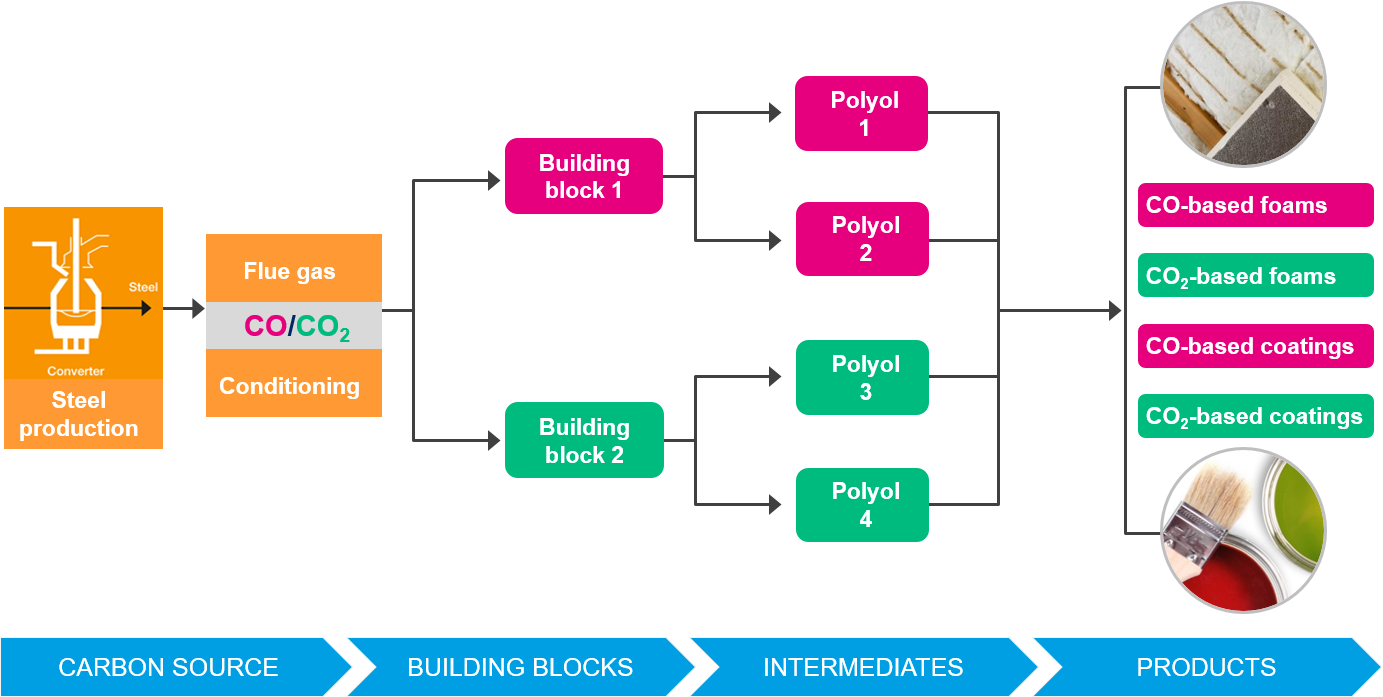The industrially driven, multidisciplinary Carbon4PUR consortium will develop and demonstrate a novel process based on direct chemical steel mill gas mixture conversion, avoiding expensive physical separation, thus substantially reducing the carbon footprint and also contributing to high monetary savings. The consortium and the development are organized along the full value chain starting with the provision and conditioning of industrial emissions from a steel to a chemical company fully in line with the concept of industrial symbiosis, going through the transformation into chemical building blocks and from the CO and CO2 based polymer intermediates, finally arriving at the implementation into rigid foams and coatings.
The general objective of the Carbon4PUR project is to develop and demonstrate (TRL4-6) a new flexible technology for the production of value-added chemicals, polyester polyols, of carbon derived from steel mill gas. Specially, the consortium will:
- Reduce carbon footprint of polyurethane intermediates by 20-60% compared to today’s polyurethane products manufactured from crude oil due to the re-utilisation of anthropogenic CO and CO2.
- Save 70% of process energy compared to conventional chemical processes.
- Provide – first time from waste CO – higher value novel polyols for the production of new, sustainable polyurethane applications (rigid foam and coatings) as an example of high value polymers, matching market needs and requirements.
- Implement a direct conversion of carbon from the steel mill gas mixture to building blocks for the production of polyol intermediates.
- Condition industrial steel mill gas by avoiding expensive“traditional” purification and conditioning methods.
- Prepare Industrial Symbiosis between consortium partners in the Port Maritime de Fos (France).
- Demonstrate the economic and social feasibility of the new technology.
- Exploit and transfer project results to key stakeholders and additional EU industries

